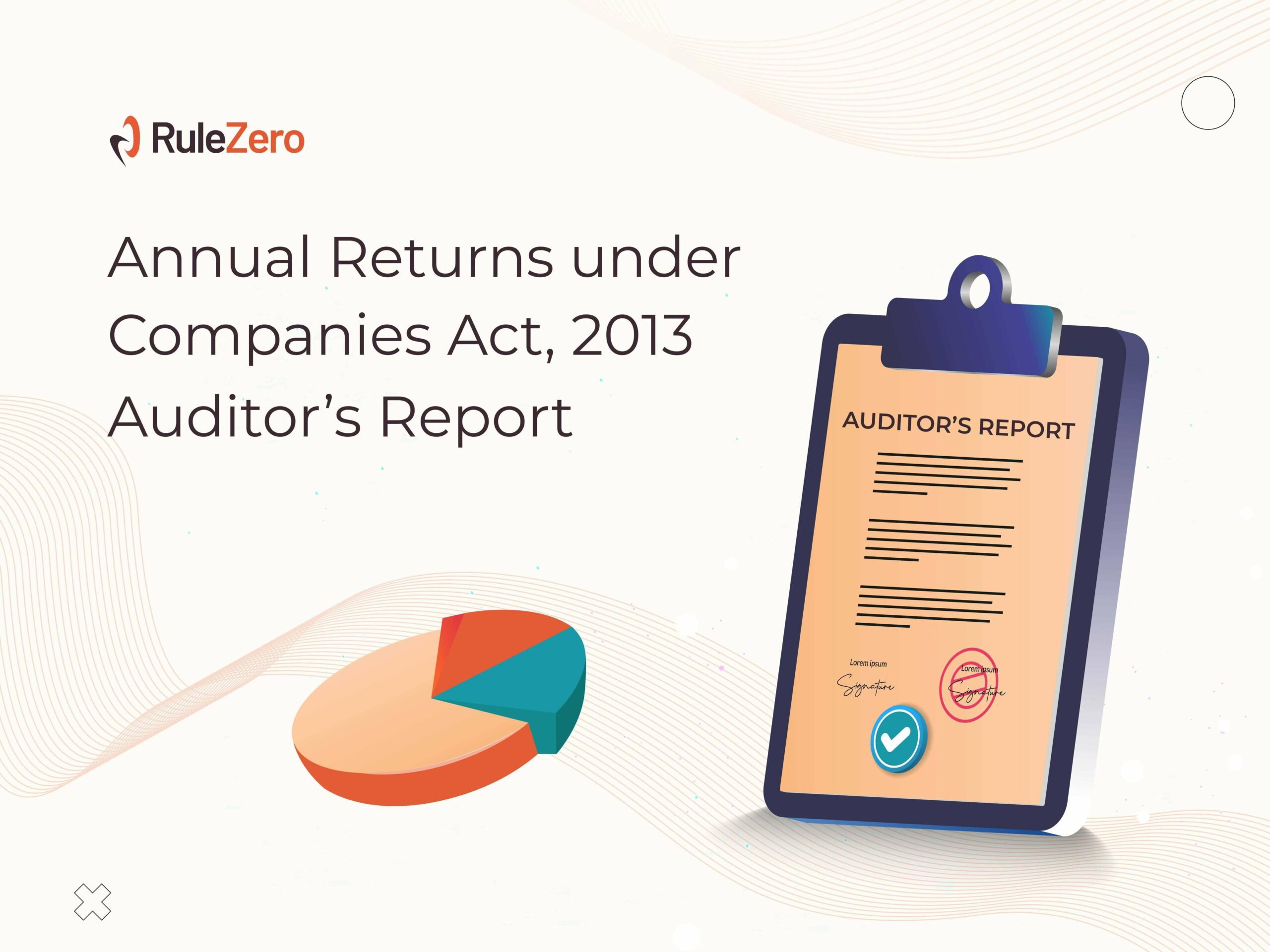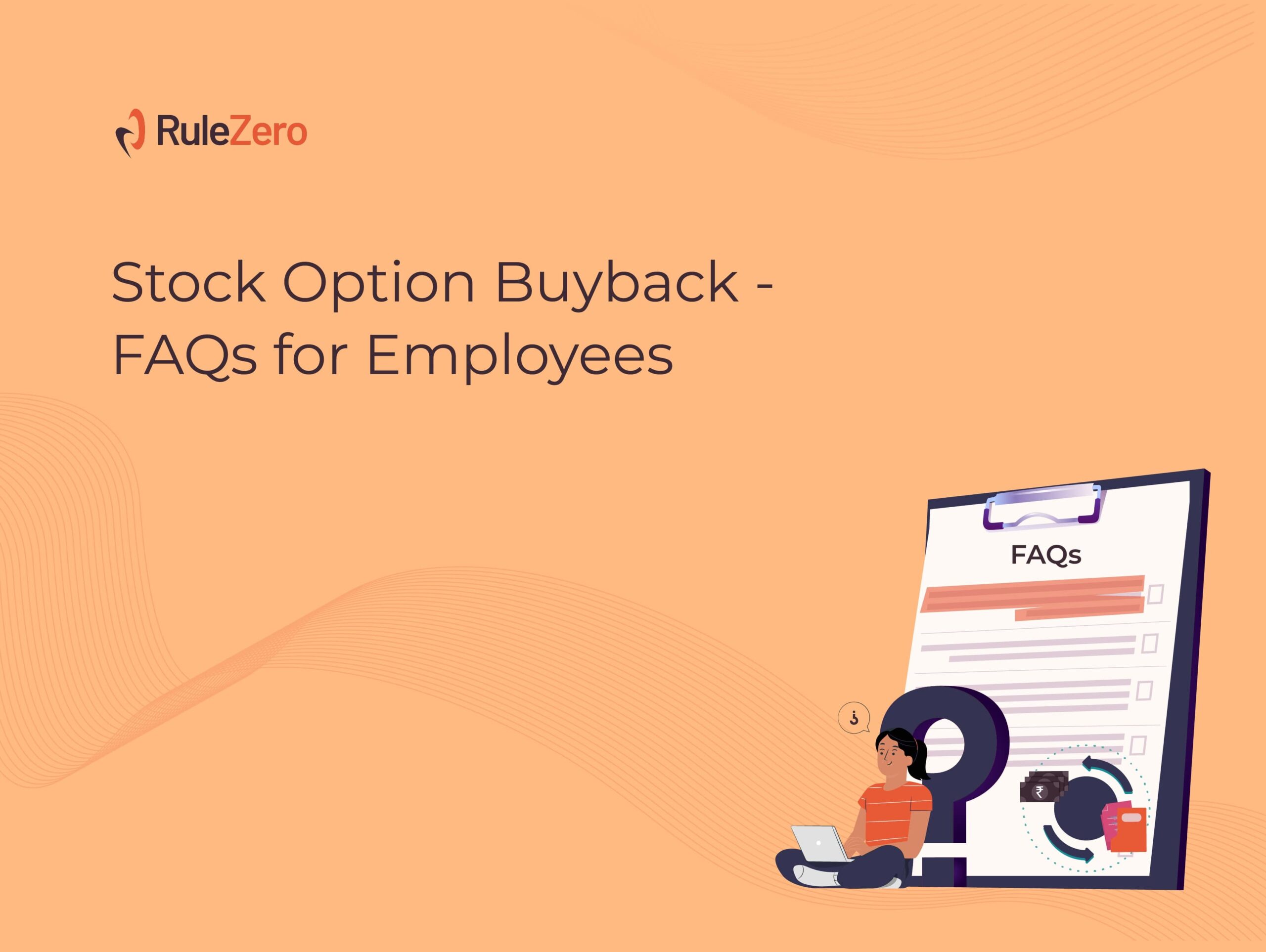What is an auditors report?
Continuing our series on annual filings of private limited companies, this blog focuses on what an audit report is and why it is important.
An audit report is a detailed document of findings and observations that a company’s statutory auditor has identified after verifying and inspecting its books of accounts, inventory, assets, investments, deposits, loans, etc. during the statutory audit. The audit report communicates key information about the company’s internal policies, financial controls, and risk policies to its stakeholders, regulators, and public.
The Companies Act, 2013 mandates that all companies must undergo a statutory audit every year. The audit report is presented in the shareholders’ meeting and attached to the financial statements filed by the company in Form AOC-4 with the Registrar of Companies (ROC).
What information does the audit report contain?
An audit report can be a qualified or unqualified report based on the nature of the findings. For instance, if the auditor believes that the company has not maintained appropriate records, or that management’s statements are not right, or there are no documents to back the numbers in the financial statements, then they will issue a qualified report.
Where the auditor is satisfied that everything is in proper order, an unqualified audit report is issued.
The audit report cannot be read as a standalone document. It is an add-on to the financial statements filed by the company in Form MGT-7 with the Registrar of Companies (ROC). Mainly, the audit report states whether:
- Proper records of the company’s assets and inventory have been maintained
- The company’s financial statements have been prepared as per generally accepted accounting principles (GAAP)
- Appropriate internal policies, such as IT policy, HR policy, data protection policy, etc., are in place to run operations effectively;
- There is any on-going litigation, pertaining to intellectual property, compliance with labour laws, etc.;
- Statutory dues, such as income tax, GST, employer’s contributions to employee provident fund, etc., have been paid;
- Statutory/regulatory filings under the Companies Act, FEMA, RBI, SEBI, etc. have been made;
- Any loans have been taken from banking institutions or other corporations to meet its expenses;
- The company has incurred any costs or paid any damages resulting in a cash loss;
- Any core investments have been made on the property, machinery, and so on;
- The revenue declared during the year is correct.
What is the importance of an audit report?
A company’s shareholders need to know how their funds are being utilised, and if all it has complied with all applicable laws – the latter is a concern for regulators too.
The report tells the shareholders if the company is maintaining its records correctly, i.e., if its accounts and financial statements give a true and fair view of the company’s state of affairs at the end of the financial year. It also helps companies rectify discrepancies identified by the auditor. For example, if the company had adopted a wrong accounting standard to maintain its books, the audit report will call this out. This gives the management an opportunity to check with the concerned team and take necessary action.
Further, the report keeps the company’s affairs transparent. Since the report is made available to all stakeholders and the regulators, details of any fraudulent activities, such as misappropriation of funds, false invoices, and declaration of wrong revenue earned during the year, are captured in the report. This makes company management (directors and office bearers) accountable.
How does audit help in corporate governance? What is the role of a director during a statutory audit?
Every company must have appropriate internal policies in place to run operations lawfully and efficiently. As a director, you are responsible for running the company, hence it is your responsibility to verify that everything is in order and the company passes the auditor’s test. This means you will need to check if all required policies are in place and the data is recorded/reported correctly. Since auditors not only check the financial statements, but also policies relating to the operations of the company, the report helps understand if necessary governance procedures are in place.
Auditing is an integral part of the risk management process. If you are a director of a small company, the complexity involved in the audit process is far lesser than for a large enterprise.
How do you prepare for an audit as a director of the company
- The auditors of the company verify several documents, such as contracts, invoices, title deeds, cost records, register of shareholders, and so on at the time of audit. Ensure that up-to-date information is maintained and kept ready well in advance to hand over to the auditors.
- Auditors may wish to physically inspect inventory. Accordingly, keep documents relating to inventory valuation, cost registers, records of overhead costs, and other records handy for easy verification.
- Check to see if all material changes in operations, internal policies, management team, etc., have been adequately disclosed to auditors.
- If any statutory law, rule, or accounting policy changes are applicable to the company during the year, make sure these changes are accounted for when recording and preparing the financial statements.
- Notify your accounting/finance team to be prepared for and answer any queries raised at the time of audit.
Final thoughts
In the aftermath of various scams and incidents in the past, regulators have become strict in evaluating companies, authenticity of their operations, correctness of their dealings, and accuracy of their books. Thus, the role of an auditor is critical, as is the need to conduct a thorough audit, prepare a detailed report, and file it with the regulators in a timely manner.










